- Home
- Lisa Kleypas
Devil in Winter Page 4
Devil in Winter Read online
Page 4
Evie was very still during the matter-of-fact recitation, forcing herself to remain relaxed against him. But inside she felt a stirring of pity for the little boy he had been. A mother and four doting sisters, all vanishing from his life. It would have been difficult for any adult to comprehend such loss, much less a child. “Do you ever wonder what your life might have been like,” she found herself asking, “if you’d had a mother?”
“No.”
“I do. I often wonder what advice she’d have given me.”
“Since your mother ended up married to a ruffian like Ivo Jenner,” St. Vincent replied sardonically, “I wouldn’t have put too much stock in her advice.” A quizzical pause. “However did they meet? It isn’t often that a gently bred girl encounters Jenner’s sort.”
“That’s true. My mother was riding in a carriage with my aunt—it was one of those winter days when the London fog is so thick at noon that one can scarcely see a few yards ahead. The carriage swerved to avoid a street vendor’s cart, and threw down my father, who happened to be standing on the nearby pavement. At my mother’s insistence, the carriage driver stopped to ask after his condition. He was just a bit bruised, nothing more. And I suppose…I suppose my father must have interested her, because she sent a letter to him the following day, inquiring once more after his health. They began a correspondence—my father had someone else write his letters for him, as he wasn’t literate. I know of no other details, save that they eventually eloped.” A smile of satisfaction curved her lips as she imagined the fury of the Maybricks upon discovering that her mother had run away with Ivo Jenner. “She was nineteen when she died,” she said reflectively. “And I’m twenty-three. It seems odd to have lived longer than she did.” Twisting in Sebastian’s arms, she glanced up at his face. “How old are you, my lord? Thirty-four? Thirty-five?”
“Thirty-two. Although at the moment I feel no less than a hundred and two.” He was staring at her curiously. “What happened to your stammer, child? It disappeared somewhere between here and Teesdale.”
“Did it?” Evie asked with mild surprise. “I suppose…I must feel comfortable with you. I tend to stammer less with certain people.” How odd—her stammer never completely vanished like this unless she was talking to children.
His chest moved beneath her ear in a huff of amusement. “No one’s ever told me that I’m a comfortable sort. I’m sure I don’t like it. I’ll have to do something diabolical soon to correct your impression.”
“No doubt you will.” She closed her eyes and slumped more heavily against him. “I think I’m too tired to stammer.”
His hand came up to her head, lightly stroking her hair and the side of her face, his fingertips massaging her temple. “Sleep,” he whispered. “We’re almost there. If you’re going to hell in a handcart, my love, you should be warmer soon.”
She wasn’t, however. The farther north they traveled, the colder it became, until Evie reflected dourly that a portion of devil’s brimstone or hell broth would have been quite welcome. The village of Gretna Green lay in the county of Dumfriesshire, just north of the border between England and Scotland. In defiance of the strict marriage laws of England, hundreds of couples had traveled the coaching road from London, through Carlisle, to Gretna Green. They came on foot, by carriage or horseback, seeking an asylum, where they could say their marriage vows and return to England as man and wife.
After a couple crossed the bridge over the Sark River and entered Scotland, they could be married anywhere in the country. A declaration before witnesses was all that was necessary. A flourishing marriage trade had developed in Gretna Green, with the residents competing to perform wedding services in private homes, hostelries, or even out-of-doors. The most famous—and infamous—location for a Gretna wedding, however, was the blacksmith’s shop, where so many hasty services had been performed that a marriage anywhere in Gretna Green was referred to as an “anvil wedding.” The tradition had started in the seventeen hundreds when a blacksmith had set himself up as the first of a long line of blacksmith priests.
At last, St. Vincent’s carriage reached its destination, an inn located next to the blacksmith’s shop. Seeming to suspect that Evie might collapse from weariness, St. Vincent kept a firm arm around her as they stood before the innkeeper’s battered desk. The innkeeper, a Mr. Findley, beamed with delight upon learning that they were an eloping couple, and assured them with broad winks that he always kept a room at the ready for situations such as this.
“’Tisn’t legal till ye consummate the weddin’, ye know,” he informed them in a nearly incomprehensible accent. “We’ve ’ad tae sneak a puir gruim an’ ’is bride ou’ the back duir o’ yon smithy, whilst their pursuers were ’ammering aweey a’ th’ front. When they came tae the inn an’ found baith lovers together abed, the bridegruim was still weering ’is boots! But there was no doubt the bonnie deed ’ad been doon.” He laughed uproariously at the memory.
“What did he say?” Evie mumbled against St. Vincent’s shoulder.
“I have no idea,” he said in her ear. “And I’d rather not speculate.” Raising his head, he said to the innkeeper, “I want a hot bath in the room when we return from the blacksmith’s cottage.”
“Aye, milord.” Eagerly the innkeeper received the coins that St. Vincent handed to him in exchange for a old-fashioned looking key. “Wad ye ’ave a supper tray as weel, milord?”
St. Vincent gave Evie a questioning glance, and she shook her head. “No,” St. Vincent replied, “but I expect we’ll want a large breakfast on the morrow.”
“Aye, milord. Ye’re goin’ tae wed a’ the smithy, aren’t ye? Ah, guid. There’s nae better priest in Gretna than Paisley MacPhee. A literate man, ’e is…’e’ll serve as a clark tae the weddin’, an make oot a fine certificate for ye.”
“Thank you.” St. Vincent kept his arm around Evie as they walked out of the inn and headed to the blacksmith’s cottage next door. A quick glance down the street revealed rows of tidy cottages and shops, with lamps being lit to relieve the gathering darkness of early evening. As they approached the front of the whitewashed building, St. Vincent murmured, “Bear up just a bit longer, sweetheart. It’s almost done.”
Leaning heavily against him with her face half hidden in his coat, Evie waited as he rapped on the door. It opened soon thereafter to reveal a bulky, ruddy-faced man with a handsome mustache that connected to his profuse side whiskers. Fortunately his Scottish burr was not nearly as thick as the innkeeper’s, and Evie was able to follow what he said.
“Are you MacPhee?” St. Vincent asked curtly.
“Aye.”
Rapidly St. Vincent made introductions and explained their purpose. The blacksmith smiled broadly. “Sae ye wish tae marry, do ye? Come inside.” He summoned his two daughters, a pair of chubby, dark-haired girls whom he introduced as Florag and Gavenia, and he led them to the shop that was attached to the residence. The MacPhees exhibited the same relentless cheer as the innkeeper Findley, which disproved much of what Evie had always heard about the reputedly dour nature of the Scots.
“Will ye have my two lasses stand as witnesses?” MacPhee suggested.
“Yes,” St. Vincent said, glancing around the shop, which was filled with horseshoes, carriage equipment, and farming implements. The lamplight struck tiny glints in the golden bristle on the lower half of his face. “As you can no doubt see, my…” He paused as if debating how to refer to Evie. “…bride…and I are quite weary. We’ve traveled from London at a bruising pace, and therefore I would like to hasten the proceedings.”
“From London?” the blacksmith inquired with obvious enjoyment, beaming at Evie. “Why have ye come tae Gretna, lass? Have yer parents nae gi’en ye leave tae wed?”
Evie smiled back at him wanly. “I’m afraid it’s not qu-quite that simple, sir.”
“’Tis seldom simple,” MacPhee agreed, nodding sagely. “But I maun warn ye, lass…if ye wad fain to marry rashly…the Scottish marriage vow is an irrevocabl
e bond that ne’er can be broken. Be certain that yer love is true, and then—”
Interrupting what promised to be a long spate of fatherly advice, St. Vincent said in a clipped voice, “It’s not a love match. It’s a marriage of convenience, and there’s not enough warmth between us to light a birthday candle. Get on with it, if you please. Neither of us has had a proper sleep in two days.”
Silence fell over the scene, with MacPhee and his two daughters appearing shocked by the brusque remarks. Then the blacksmith’s heavy brows lowered over his eyes in a scowl. “I don’t like ye,” he announced.
St. Vincent regarded him with exasperation. “Neither does my bride-to-be. But since that’s not going to stop her from marrying me, it shouldn’t stop you either. Go on.”
MacPhee turned a now-pitying gaze on Evie. “The lass has nae flowers,” he exclaimed, now determined to lend a romantic atmosphere to the proceedings. “Florag, run tae fetch sae white heather.”
“She doesn’t need flowers,” St. Vincent snapped, but the girl scampered away nonetheless.
“’Tis an auld Scottish custom for a bride tae carry white heather,” MacPhee explained to Evie. “Shall I tell ye why?”
Evie nodded and fought to suppress a helpless titter of amusement. In spite of her fatigue—or perhaps because of it—she was beginning to take a perverse enjoyment in the sight of St. Vincent struggling to control his annoyance. At the moment, the unshaven, ill-tempered man who stood beside her bore no resemblance to the smug aristocrat who had attended Lord Westcliff’s house party in Hampshire.
“A lang, lang time ago…” MacPhee began, ignoring St.Vincent’s low groan, “there was a bonnie maid called Malvina. She was the betrothed of Oscar, the braw warrior who won her heart. Oscar bade his beloved tae wait for him while he went tae seek his fortune. But one black day Malvina received word that her lover had been killed in battle. He would lie forever in eternal rest in the faraway hills…lost in endless slumber…”
“God, I envy him,” St. Vincent said feelingly, rubbing his own dark-circled eyes.
“As Malvina’s tears o’ grief wet the grass like dew,” MacPhee continued, “the purple heather at her feet turned white. An’ that’s why every Scottish bride carries white heather on her weddin’ day.”
“That’s the story?” St. Vincent asked with an incredulous scowl. “The heather comes from the tears of a girl over her dead lover?”
“Aye.”
“Then how in God’s name can it be a token of good luck?”
MacPhee opened his mouth to reply, but at that moment Florag returned to give Evie a sprig of dried white heather. Murmuring her thanks, Evie allowed the blacksmith to lead her to the anvil in the center of the shop. “Do ye have a ring for the lass?” MacPhee asked St. Vincent, who shook his head. “Sae I thought,” the blacksmith said smugly. “Gavenia, fetch the ring box.” Leaning closer to Evie, he explained, “I join precious metals as well as iron. ’Tis fine workmanship, an’ all in Scottish gold.”
“She doesn’t need—” St. Vincent stopped with a scowl as Evie raised her gaze to his. He let out a taut sigh. “All right. Choose something quickly.”
Withdrawing a square of wool from the ring box, MacPhee spread it on the anvil and tenderly placed a selection of a half-dozen rings on the fabric. Evie leaned closer to view them. The rings, all gold bands of varying sizes and patterns, were so exquisite and delicate that it seemed impossible for them to have been created by the blacksmith’s burly, broad-fingered hands. “This one is thistles an’ knotwork,” MacPhee said, holding one up for her inspection. “This is a key pattern, an’ this, a Shetland rose.”
Evie picked up the smallest of the rings and tried it on the fourth finger of her left hand. It fit perfectly. Raising it closer to her face, she examined the design. It was the simplest of all the rings, a polished gold band engraved with the words Tha Gad Agam Ort. “What does this mean?” she asked MacPhee.
“It says, ‘My love is upon ye.’”
There was no sound or movement from St. Vincent. Evie flushed in the awkward silence that followed, and slipped the ring off, now regretting having taken any interest in the rings. The sentiment of the phrase was so out of place in this hasty ceremony that it emphasized what a hollow mockery of a wedding it was. “I don’t think I want one after all,” she mumbled, placing the little ring gently onto the cloth.
“We’ll take it,” St. Vincent stunned her by saying. He picked up the gold circlet. As Evie glanced up at him with wide eyes, he added curtly, “They’re just words. It means nothing.”
Evie nodded and bent her head, her violent blush remaining.
MacPhee regarded the two of them with a frown and pulled on the side whiskers of his right cheek. “Lasses,” he said to his daughters with determined cheer, “we’ll have a song from ye now.”
“A song—” St. Vincent protested, and Evie tugged at his arm.
“Let them,” she murmured. “The more you argue, the longer it will take.”
Swearing beneath his breath, St. Vincent stared at the anvil with a narrowed gaze, while the sisters crooned in practiced harmony.
Oh, my love is like a red, red rose
That’s newly sprung in June
Oh, my love is like a melody
That’s sweetly played in tune
As fair art thou, my bonnie lass,
so deep in love am I
And I will love thee still, my dear
Till all the seas gang dry…
Listening to his daughters with glowing pride, the blacksmith waited until the last drawn-out note was finished, and then he praised them lavishly. He turned to the couple by the anvil and said importantly, “Now I maun ask ye this: Are ye both unmarried persons?”
“Yes,” St. Vincent replied shortly.
“An’ have ye a ring for the lass?”
“You just—” St. Vincent stopped with a muttered imprecation as MacPhee’s bushy brows raised expectantly. Clearly if they wanted the ceremony to be done with, they would have to follow the blacksmith’s lead. “Yes,” he growled. “I have one right here.”
“Then place it on the lass’s finger, an’ match yer hand to hers.”
Evie felt queer and light-headed as she stood facing St. Vincent. The moment he slid the ring onto her finger, her heart began beating much too fast, setting off reckless currents of something that was neither eagerness nor fear, but a new emotion that heightened her senses unbearably. There was no word for it, this feeling. Tension gripped her while the pounding of her pulse refused to abate. Their hands flattened together, his fingers much longer than hers, his palm smooth and hot.
His head inclined slightly, his face covering hers. Although he was expressionless, a hint of color had glazed the high planes of his cheekbones and crossed the bridge of his nose. And his breath was faster than usual. Surprised by the realization that she had already come to know something as intimate as the normal rhythm of his breathing, Evie averted her gaze. She saw the blacksmith taking a length of white ribbon from one of his daughters, and she flinched a little as he looped it firmly around their joined wrists.
A wordless murmur tickled her ear, and she felt St. Vincent’s free hand come up to the side of her neck, stroking her as if she were a nervous animal. She relaxed at his touch, while his fingertips moved over her skin with sensitive lightness.
MacPhee busily wrapped the ribbon around their wrists. “Now we tie the knot,” he said, doing so with a flourish. “Repeat after me, lass…‘I do take thee to my husband.’”
“I do take thee to my husband,” Evie whispered.
“Milord?” the blacksmith prompted.
St. Vincent looked down at her, his eyes cool and diamond-bright, revealing nothing. And yet she sensed somehow that he too felt the queer, eager tension that was building between them, a charge as strong as lightning.
His voice was low and quiet. “I do take thee to my wife.”
Satisfaction rang in MacPhee’s voice. “Before God an
’ these witnesses I declare ye to be married persons. Whom God hath joined let no man put asunder. That will be eighty-two pounds, three crowns, an’ one shilling.”
St. Vincent tore his gaze from Evie with difficulty and glanced at the blacksmith with a raised eyebrow.
“’Tis fifty pounds for the ring,” MacPhee said in answer to the wordless question.
“Fifty pounds for a ring with no stones?” St. Vincent inquired acidly.
“That’s Scottish gold,” MacPhee said, looking indignant that his price should be called into question. “Frae the burns o’ the Lowther hills it came—”
“And the rest of it?”
“Thirty pounds for the rites, one pound for the use o’ my shop, one guinea for the marriage certificate, which I will have ready at the morrow, one crown apiece for the witnesses”—the blacksmith paused to gesture to his daughters, who giggled and bobbed in curtsies—“another crown for the flowers—”
“A crown for a handful of dried weeds?” St. Vincent asked in outrage.
“I’ll gi’ ye the song at no charge,” MacPhee conceded graciously. “Oh, an’ a shilling for the ribbon…which ye maun not untie till the marriage is consummated…or ill luck will follow ye from Gretna.”
St. Vincent opened his mouth to argue, but after one glance at Evie’s exhausted face, he reached into his coat for the money. His movements were awkward, for he was right-handed and his left was the only one available for use. Pulling out a wad of banknotes and a few coins, he tossed them onto the anvil. “There,” he said gruffly. “No, don’t return the change. Give it to your daughters”—a sardonic note entered his voice—“along with my gratitude for the song.”
A chorus of thanks erupted from MacPhee and the girls, who were inspired to follow them to the door of the building, singing an extra verse of the wedding song.

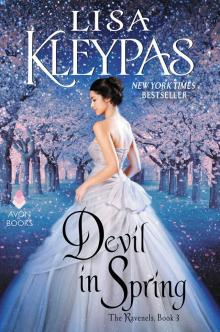 Devil in Spring
Devil in Spring Sugar Daddy
Sugar Daddy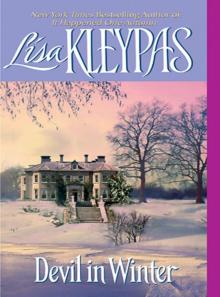 Devil in Winter
Devil in Winter Dreaming of You
Dreaming of You Christmas Eve at Friday Harbor
Christmas Eve at Friday Harbor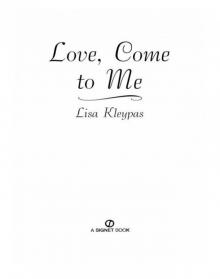 Love, Come to Me
Love, Come to Me Only With Your Love
Only With Your Love Suddenly You
Suddenly You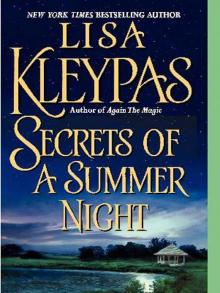 Secrets of a Summer Night
Secrets of a Summer Night Cold-Hearted Rake
Cold-Hearted Rake Where's My Hero?
Where's My Hero? Gifts of Love
Gifts of Love Married by Morning
Married by Morning Then Came You
Then Came You Wish List
Wish List Where Dreams Begin
Where Dreams Begin A Historical Christmas Present
A Historical Christmas Present Somewhere I'll Find You
Somewhere I'll Find You Scandal in Spring
Scandal in Spring Someone to Watch Over Me
Someone to Watch Over Me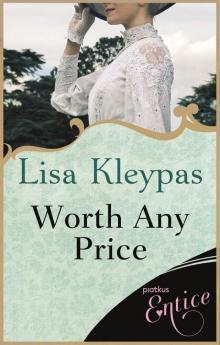 Worth Any Price
Worth Any Price Prince of Dreams
Prince of Dreams It Happened One Autumn
It Happened One Autumn Love in the Afternoon
Love in the Afternoon Devil's Daughter
Devil's Daughter A Wallflower Christmas
A Wallflower Christmas Tempt Me at Twilight
Tempt Me at Twilight Brown-Eyed Girl
Brown-Eyed Girl Mine Till Midnight
Mine Till Midnight Again the Magic
Again the Magic Lady Sophia's Lover
Lady Sophia's Lover Because You're Mine
Because You're Mine Midnight Angel
Midnight Angel Smooth-Talking Stranger
Smooth-Talking Stranger Blue-Eyed Devil
Blue-Eyed Devil Hello Stranger
Hello Stranger Dream Lake
Dream Lake Devil's Daughter: The Ravenels Meet the Wallflowers
Devil's Daughter: The Ravenels Meet the Wallflowers A Christmas to Remember
A Christmas to Remember Smooth Talking Stranger
Smooth Talking Stranger Crystal Cove
Crystal Cove Marrying Winterborne
Marrying Winterborne Stranger in My Arms
Stranger in My Arms Devil in Disguise
Devil in Disguise Worth Any Price bsr-3
Worth Any Price bsr-3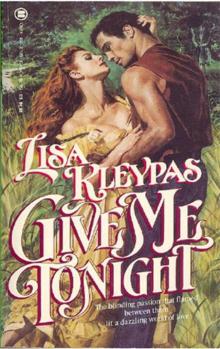 Give Me Tonight
Give Me Tonight Rainshadow Road fh-2
Rainshadow Road fh-2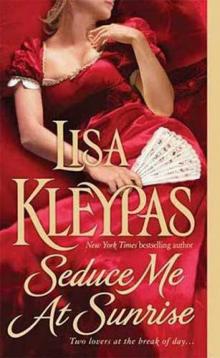 Seduce Me At Sunrise
Seduce Me At Sunrise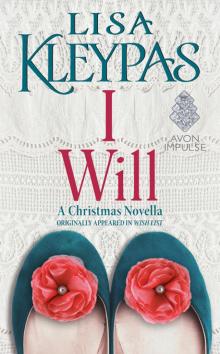 I Will
I Will Someone to Watch Over Me bsr-1
Someone to Watch Over Me bsr-1 Lady Sophias Lover bsr-2
Lady Sophias Lover bsr-2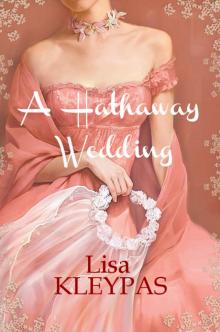 A Hathaway Wedding
A Hathaway Wedding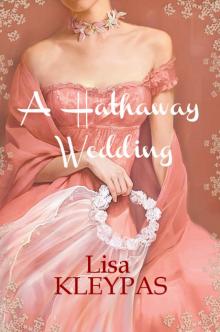 A Hathaway Wedding (Hathaways Bk2.5)
A Hathaway Wedding (Hathaways Bk2.5) Worth Any Price - Bow Street 3
Worth Any Price - Bow Street 3 Christmas with Holly
Christmas with Holly